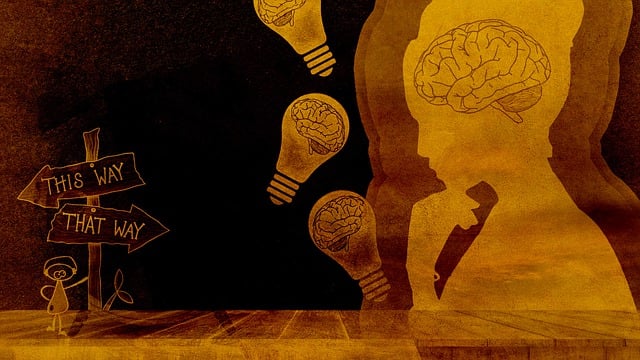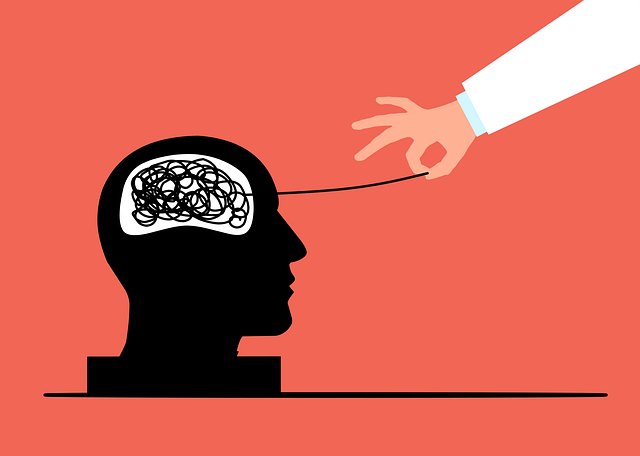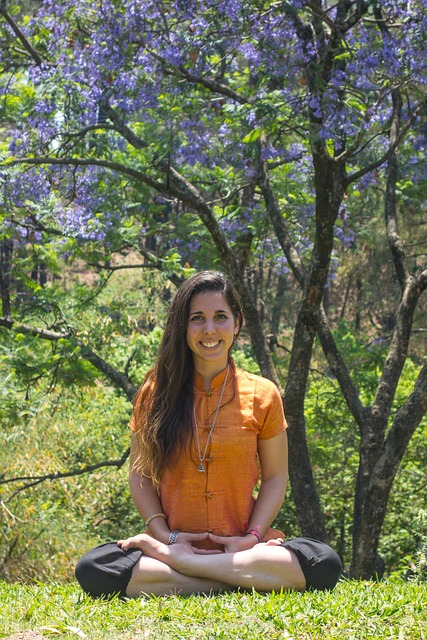Mindfulness meditation is a powerful tool in Boulder Conduct Disorder Therapy (BCDT), aiding stress management, emotional regulation, and improved focus. Creating a dedicated home mindfulness space with soft lighting, comfortable seating, and calming decorations can significantly boost well-being. BCDT emphasizes integrating brief daily sessions into routines, using techniques like breath focusing and guided visualizations for better mental health. They offer group settings and Healthcare Provider training to overcome consistency and motivation barriers, fostering sustainable mindfulness practices.
Unwind your mind and embrace tranquility through mindfulness meditation, a practice gaining global recognition for its profound benefits. This comprehensive guide delves into the art of mindfulness, offering insights on how to harness its power from the comfort of home. From understanding its foundational concepts to navigating common challenges, we explore effective techniques, including strategies inspired by Boulder Conduct Disorder Therapy. Embrace a calmer, more focused you.
- Understanding Mindfulness Meditation and its Benefits
- Setting Up a Successful Mindfulness Practice at Home
- Techniques for Effective Mindfulness Meditation
- Overcoming Common Challenges in Mindfulness Practice with Boulder Conduct Disorder Therapy
Understanding Mindfulness Meditation and its Benefits

Mindfulness meditation is a powerful practice that has gained significant traction in recent years, especially within the realm of Boulder conduct disorder therapy. It involves focusing one’s awareness on the present moment, acknowledging and accepting thoughts and feelings as they arise, without judgment. This simple yet profound technique has been shown to offer numerous benefits for mental health and overall well-being. By cultivating mindfulness, individuals can enhance their ability to manage stress, regulate emotions, and improve focus and concentration.
In the context of conduct disorder therapy, mindfulness meditation serves as a valuable tool for mood management and crisis intervention guidance. It teaches individuals to observe their thoughts and behaviors without reacting impulsively, fostering better decision-making skills and healthier communication strategies. The practice encourages self-awareness, enabling individuals to understand triggers and develop effective coping mechanisms. This, in turn, can lead to improved relationships, reduced anxiety, and better overall functioning in daily life.
Setting Up a Successful Mindfulness Practice at Home

Creating a dedicated space for mindfulness practice at home can greatly enhance your overall well-being and even support individuals dealing with conditions like Boulder Conduct Disorder Therapy. Start by setting aside just a few minutes each day in a quiet area, free from distractions. A cozy corner of your bedroom or a peaceful corner in your living room could do the trick. Ensure it’s a place you can access easily but also where you can find respite from daily chaos.
Incorporate simple elements to create a soothing environment. Consider adding soft lighting, comfortable seating, and perhaps some calming decorations or plants. This sacred space should encourage relaxation and focus. With consistency, this practice can develop into an integral part of your routine, offering valuable tools for emotional regulation, communication strategies, and even the exploration of Mental Wellness Coaching Programs Development.
Techniques for Effective Mindfulness Meditation

Mindfulness meditation is a powerful tool to enhance mental wellness and self-care routine development. Techniques such as focusing on the breath, body scans, and guided visualizations can help individuals develop empathy building strategies. By engaging in regular mindfulness practice, one can cultivate a deeper sense of awareness and presence in their daily lives.
For those looking to incorporate effective mindfulness meditation into their self-care routine, starting with just a few minutes each day can make a significant difference. The Boulder Conduct Disorder Therapy approach emphasizes the importance of consistent practice. Incorporating mental wellness journaling exercises alongside meditation can provide an opportunity for reflection and introspection, further enriching the experience. Through these practices, individuals not only improve their ability to manage stress but also foster better emotional regulation and enhanced overall mental health.
Overcoming Common Challenges in Mindfulness Practice with Boulder Conduct Disorder Therapy

Many individuals seeking mindfulness meditation practice face common challenges that can hinder their progress. Boulder Conduct Disorder Therapy (BCDT) offers unique insights into overcoming these obstacles, drawing from its experience in helping people navigate complex behaviors and emotions. One significant challenge is maintaining consistency. In today’s fast-paced world, finding dedicated time for mindfulness can be tricky. BCDT emphasizes the importance of integrating mindfulness meditation into daily routines, even if it’s just a few minutes each day. They encourage individuals to view mindfulness as a personal investment in their well-being, much like attending to physical health through exercise.
Another challenge is staying motivated. BCDT suggests incorporating mindfulness into activities one already enjoys or finding accountability partners within supportive communities. Their Community Outreach Program Implementation encourages group settings where individuals can share experiences and learn from one another. Moreover, Healthcare Provider Cultural Competency Training can foster a deeper understanding of personal barriers and promote a sense of belonging. By combining these approaches, BCDT facilitates a more sustainable mindfulness practice, allowing individuals to embrace the transformative power of meditation.
Mindfulness meditation, as discussed in this article, offers a powerful tool for enhancing mental and emotional well-being. By understanding its benefits, setting up a home practice, and employing effective techniques, individuals can navigate their minds with greater clarity and resilience. Overcoming challenges with strategies like Boulder Conduct Disorder Therapy further empowers the practice, making mindfulness meditation accessible to all. Embrace these insights and take a step towards a calmer, more balanced life.














